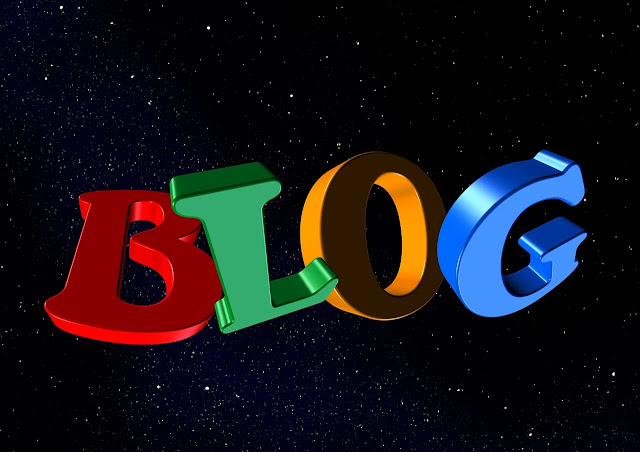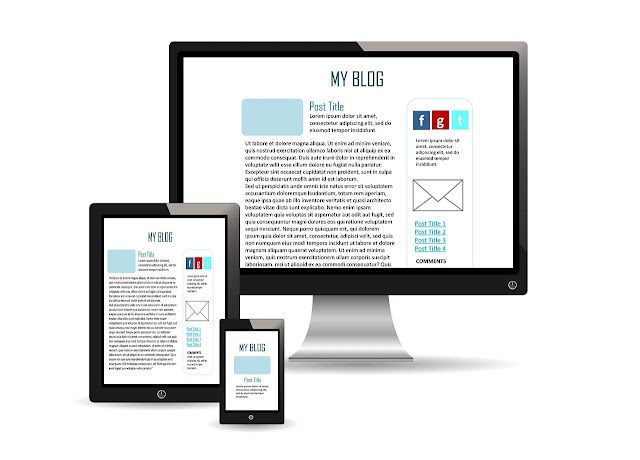What is the simple definition of a blog?
A "blog" is a type of website or online platform where an individual, a group of people, or an organization regularly publishes and shares content in a reverse chronological order. The term "blog" is short for "weblog," which was coined in the late 1990s to describe a digital journal or diary on the World Wide Web. Over time, blogs have evolved into diverse forms and have become a significant part of online communication and content creation.
Here are some key characteristics and features of a blog:
Content: Blogs typically feature a series of articles or posts, often written in an informal, conversational style. These posts can cover a wide range of topics, including personal experiences, hobbies, interests, news, commentary, reviews, tutorials, and much more.
Chronological Order: Blog posts are displayed in reverse chronological order, with the most recent post appearing at the top of the blog's homepage. This arrangement allows readers to easily access the latest content.
Authorship: Blogs are usually associated with specific authors or bloggers who write and curate the content. Bloggers often have a distinct voice and style that gives their blog a unique personality.
Interactivity: Many blogs allow readers to leave comments on individual posts, facilitating two-way communication between the blogger and the audience. This interactivity can lead to discussions, feedback, and community building.
Archives: Blogs typically have archives or an organized way to access older posts, making it easy for readers to explore the blog's history and find content on specific topics.
Categories and Tags: Posts are often categorized into topics or themes, and they may also be tagged with keywords to improve searchability and organization.
RSS Feeds: Blogs often provide RSS (Really Simple Syndication) feeds, allowing readers to subscribe to the blog and receive updates automatically through feed readers or email.
Design and Customization: Bloggers can usually customize the design and layout of their blogs to reflect their personal style or brand. Many blogging platforms offer themes and templates for this purpose.
Monetization: Some bloggers use their blogs as a platform to generate income through methods like advertising, affiliate marketing, sponsored content, or selling products and services.
Platform Choices: Bloggers can choose from various platforms to create and host their blogs, including self-hosted solutions like WordPress.org, hosted platforms like WordPress.com and Blogger, as well as website builders like Wix and Squarespace.
Blogs serve a wide range of purposes, from personal diaries and creative outlets to professional journalism and business marketing. They are a versatile and accessible way for individuals and organizations to share their thoughts, expertise, and stories with a global audience on the internet. Blogs have played a crucial role in democratizing content creation and allowing diverse voices to be heard online.
Here are some key characteristics and features of a blog:
Content: Blogs typically feature a series of articles or posts, often written in an informal, conversational style. These posts can cover a wide range of topics, including personal experiences, hobbies, interests, news, commentary, reviews, tutorials, and much more.
Chronological Order: Blog posts are displayed in reverse chronological order, with the most recent post appearing at the top of the blog's homepage. This arrangement allows readers to easily access the latest content.
Authorship: Blogs are usually associated with specific authors or bloggers who write and curate the content. Bloggers often have a distinct voice and style that gives their blog a unique personality.
Interactivity: Many blogs allow readers to leave comments on individual posts, facilitating two-way communication between the blogger and the audience. This interactivity can lead to discussions, feedback, and community building.
Archives: Blogs typically have archives or an organized way to access older posts, making it easy for readers to explore the blog's history and find content on specific topics.
Categories and Tags: Posts are often categorized into topics or themes, and they may also be tagged with keywords to improve searchability and organization.
RSS Feeds: Blogs often provide RSS (Really Simple Syndication) feeds, allowing readers to subscribe to the blog and receive updates automatically through feed readers or email.
Design and Customization: Bloggers can usually customize the design and layout of their blogs to reflect their personal style or brand. Many blogging platforms offer themes and templates for this purpose.
Monetization: Some bloggers use their blogs as a platform to generate income through methods like advertising, affiliate marketing, sponsored content, or selling products and services.
Platform Choices: Bloggers can choose from various platforms to create and host their blogs, including self-hosted solutions like WordPress.org, hosted platforms like WordPress.com and Blogger, as well as website builders like Wix and Squarespace.
Blogs serve a wide range of purposes, from personal diaries and creative outlets to professional journalism and business marketing. They are a versatile and accessible way for individuals and organizations to share their thoughts, expertise, and stories with a global audience on the internet. Blogs have played a crucial role in democratizing content creation and allowing diverse voices to be heard online.
What is blogging?
Blogging refers to the act of creating and maintaining a blog. It involves regularly publishing content on a blog platform, typically in the form of articles or posts, which can cover a wide range of topics and are often organized in reverse-chronological order, with the most recent posts appearing at the top. Blogging can be done by individuals, groups, businesses, or organizations and serves various purposes.
Use of blog posts
Blog posts serve various purposes and can be used in a wide range of contexts, depending on the goals of the blogger or the organization behind the blog. Here are some common uses of blog posts:
Inform and Educate: Many blogs are used to provide information and educate readers on specific topics. This could include how-to guides, tutorials, explanations of complex subjects, or informative articles.
Entertain: Some blogs are primarily focused on entertainment. They may feature humorous content, storytelling, fiction, or media reviews (e.g., movie, book, or game reviews).
Express Opinions and Perspectives: Blogs offer a platform for individuals to share their opinions, perspectives, and personal experiences. This can include political commentary, personal essays, or reviews.
Share News and Updates: News blogs or company blogs are used to keep readers informed about recent developments, events, or updates related to a particular field, industry, or organization.
Showcase Creative Work: Artists, writers, photographers, and other creatives often use blogs to showcase their creative work, whether it's writing, artwork, photography, or music.
Promote Products or Services: Businesses frequently use blogs as part of their content marketing strategy. They create blog posts to promote their products or services, provide value to their customers, and build brand awareness.
Engage with the Audience: Blogs enable interaction between authors and readers. Bloggers can engage with their audience by responding to comments, conducting surveys, or inviting guest posts.
Demonstrate Expertise: Professionals and experts in various fields use blogs to establish themselves as authorities or thought leaders. They share insights, research findings, and industry trends to demonstrate their expertise.
Generate Income: Some bloggers monetize their blogs through advertising, affiliate marketing, sponsored content, or by selling products and services directly to their audience.
Advocate and Raise Awareness: Blogs are used by activists and advocates to raise awareness about specific social, political, or environmental issues. They can be a powerful tool for driving social change.
Document Personal Journeys: Personal blogs often serve as a platform for individuals to document their life journeys, including travel experiences, health challenges, or personal growth.
SEO and Traffic Generation: Blog posts can be optimized for search engines (SEO) to increase a website's visibility in search results. Well-optimized blog content can attract organic traffic to a website.
Build Community: Blogs can foster a sense of community among readers who share common interests or concerns. Readers may interact through comments, forums, or social media.
Share Resources: Educational and informational blogs often provide valuable resources, such as downloadable guides, templates, or checklists, to help readers solve specific problems or achieve certain goals.
Inspire and Motivate: Some bloggers aim to inspire and motivate their readers by sharing personal success stories, overcoming challenges, or offering motivational content.
Ultimately, the use of a blog post depends on the blogger's objectives and the target audience's interests. Blogs are versatile tools that can adapt to a wide range of content types and purposes.
History of blogging
1. The early stage of blog (1994-1997) .
In Jan 1994, Justin Hall created the first blog called links.net. In the same year , Claudic Pinhonez ( senior manager at IBM) start to write short entires called on "open diary".
2. More resources for bloggers (1998-2002) October (1998) open diary becomes the most popular blogging platform. In 1999 blogger, live journal also launched in this year.
3. Mainstream is introduced (2003-2006)
In 2003, two blogging services, type pad and wordpress, were introduced to increase the number of bloggers.
Press Flex LLC launched the blog Ads
after the google launched two products, adsense and adwords.
4. A blog becomes a part of modern culture (2006-2008). In 2006, micro blogging has emerged with the introduction of twitter.
Blogging dark ages (2009-2011)
In 2011, when the google Panda algorithm was introduced, many blogs were rejected by google due to the low quality of the content.
Modern blogging
In Aug 2012, a co-founder of Pyra Labs "Even Williams " created the newest blogging platform, " Medium."
In 2013, LinkedIn was launched. It allows freshers and professionals to share their opinions.
Advantage of blog
1. Improved SEO and web traffic. A valuable, relevant and informative content help us to improve SEO ranking and bring more audience to our blog.
2. Help us to learn new technology writing and reading blog posts help us to understand and learn new technology quickly. The blog also helps us to learn video and photography skill also learn web designing.
3. Help us to improve writing skill writing blog help us to improve our writing skill and style. It also provides a way
Tags:
knowledge




